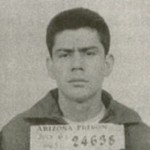Can You Grow From a “No”?
On occasion, my brother-in-law and I get to thinking about the same topic. His venue is a weekly sermon often linked to the Torah portion, while mine is the classroom and the blog. I had much fun talking with him last week as he wrote his sermon “Can You Grow From a No?” and I am delighted to link to his full sermon from two weeks ago in which I am the obliquely-referenced sister-in-law. As he said,
To be human is to be in constant negotiation with other people, and those negotiations will either end in “yesses” or in “no’s.” And because we have needs, because we know what we think we want, because we are vain and have egos, we want those exchanges to end with a “yes.” We want our cravings to be met, our opinions proven true and our positions affirmed. A “yes” brings satisfaction. Our will has prevailed, our efforts have paid off, our selves have been validated. A “yes” means we were right.
“No’s” are less fun. “No’s” signal defeat. When someone tells us “no,” we feel a little piece of us die. We are bruised and we are hurt, diminished in the eyes of others and in our own eyes.


